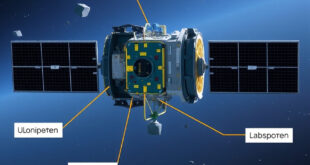Hydrogen & Ammonia: Dual Fuels Leading the Clean Energy Revolution Hydrogen and ammonia are emerging as powerful partners in decarbonizing aviation, shipping, and heavy industry—reshaping the future of global energy. The Carbon Conundrum For over a century, hydrocarbon fuels (CₓHᵧ) have formed the backbone of global energy systems—powering turbines, propelling …
Read More »Navigating the Challenges: Battery Considerations in the Era of Electric Aircraft
Navigating the Challenges: Battery Considerations in the Era of Electric AircraftBatteries hold the key to electric aviation, but weight, safety, and energy density remain aviation’s toughest hurdles. Introduction: Despite the push for more sustainable aviation, the aviation industry still accounts for around 2.5% of global CO₂ emissions and this share …
Read More »Specialized Military Batteries: Advanced Energy Solutions for Next-Generation Warfare
Introduction In modern military operations, the performance and reliability of batteries are critical, as they underpin everything from communications and unmanned systems to ground vehicles and soldier-carried gear. As military technology evolves, batteries must not only deliver high energy density and long operational life but also meet stringent requirements for …
Read More »Military Plans for Electric & Hybrid Land Vehicles: Enhancing Stealth, Efficiency, and Sustainability
Military Electrification: The Silent Revolution in Combat Vehicles One-Liner: How electric and hybrid military vehicles are redefining stealth, efficiency, and battlefield power. The modern battlefield is evolving, and so is military technology. As armed forces worldwide seek to enhance mobility, reduce logistical burdens, and improve sustainability, electric and hybrid land …
Read More »The Future of UAV Propulsion Systems: Advances, Challenges, and Innovations
The Future of UAV Propulsion: From Solar Flyers to Supersonic Swarms Breakthrough propulsion systems are setting the stage for faster, cleaner, and smarter drones. Introduction Unmanned Aerial Vehicles (UAVs) have transformed military, commercial, and scientific domains, with their propulsion systems being a key factor in determining endurance, efficiency, and mission …
Read More »The Hyperloop Revolution: Market Surge, Technological Leaps, and the Global Push for Ultra-High-Speed Transport (2025 Update)
The Hyperloop Revolution: Market Surge, Technological Leaps, and the Global Race for Ultra-High-Speed Transport Hyperloop technology is moving from vision to reality, promising near-supersonic travel, zero emissions, and a global transformation in how we connect cities. The dream of whisking between cities at near-supersonic speeds through low-pressure tubes is no …
Read More »Carbon Capture, Utilization, and Storage (CCUS): Bridging the Gap to a Net-Zero Future
Carbon Capture: Powering Net-Zero with Innovation and Industrial Transformation From steel plants to shipping lanes, CCUS is quietly reshaping our climate future—one captured molecule at a time. As the world accelerates its fight against climate change, Carbon Capture, Utilization, and Storage (CCUS) is emerging as a critical lever in the …
Read More »Wearable Batteries: Powering the Future of Soldiers and Smart Devices
Wearable Batteries: The Power Behind Smart Tech and Modern Soldiers Discover how next-gen wearable batteries are revolutionizing defense, health, and everyday tech with smarter, lighter, and longer-lasting power. In the age of smart technology, wearable devices have become an essential part of our daily lives. From fitness trackers and smartwatches …
Read More »Dual-Fuel Electric+ (DFE+) and Dual-Fuel Diesel Electric (DFE) Propulsion Systems: The Future of Maritime and Industrial Efficiency
DFE and DFE+: Powering the Future of Clean, Smart Marine Propulsion From LNG to batteries, dual-fuel systems are driving the global shift to cleaner, more flexible energy on sea and land. The global push toward cleaner and more efficient energy solutions has driven significant advancements in hybrid propulsion technology. Dual-Fuel …
Read More »The Future is Electric: Exploring the Expanding Market of Electric Propulsion Satellites
Electric Propulsion Satellites: The Silent Revolution Powering the Future of Space Discover how electric propulsion is transforming satellites—from commercial missions to military surveillance. The development of electric propulsion systems for small spacecraft has revolutionized our capabilities, from deep space exploration to covert spy missions. This technology offers a promising solution …
Read More » International Defense Security & Technology Your trusted Source for News, Research and Analysis
International Defense Security & Technology Your trusted Source for News, Research and Analysis









